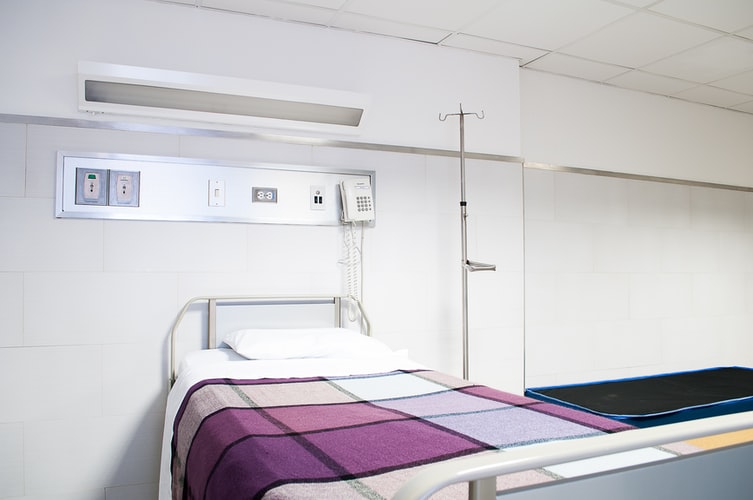One of the most tragic consequences of addiction is the damage it does to relationships with loved ones.
According to the National Survey on Drug Use and Health, 19.3 million Americans over the age of 18 had a substance use disorder. That’s potentially a great deal of heartache and pain for families, partners, friends, and the people struggling with an addiction.
In Massachusetts alone, there were 1,991 overdose deaths in 2018. That means hundreds of broken-hearted families and loved ones left to mop up the consequences. Imagine the trauma those loved ones endured while they witnessed the demise and eventual death of someone they cherished.
When in the throes of addiction, you push away the very people you need the most. Life, as they say in 12-step programs, becomes unmanageable.
If you have struggled with substance use disorder, you’ll understand how it’s easier to spend time with other people on the same journey. You understand each other at a base level through this shared experience. You don’t need to explain yourself when you’re around others in the same boat.
A spouse or family member has likely suffered much misery and anguish at the hands of someone’s addiction. Addiction becomes a person’s priority rather than nurturing the relationship itself. As a result, this dysfunction leads to resentment, diminished trust, and assorted emotional fallout.
When it comes to taking control of your life and detoxing, though, it’s time to start rebuilding those bridges you torched through your addiction. It’s going to take some time and effort to approach those people and rebuild a trusting relationship.
So, what steps can you actively take to heal those relationships when you reunite after rehab?
While In Treatment
The first and most crucial step is getting substance-free. You can then better assess your relationships from a sober standpoint.
When you go to a treatment center and detox from drink or drugs, you will start to think more clearly. This is the time to consider the times you hurt people, the lies you told, and the things you did secretly.
During detox, individual and group therapy sessions will provide a valuable opportunity to examine your relationships and the impact of your substance use disorder. You will learn valuable lessons about what makes a healthy relationship.
Your time in rehab, then, will give you the tools to rebuild your relationships while looking to a positive and healthy future.
The type of therapy you have during treatment will depend entirely on your circumstances. You might attend couples counseling or family counseling with your loved ones.
Family Counseling
Research shows that family counseling can help a person to stay substance-free when you reunite after rehab.
Family counseling aims to:
- Improve communication skills
- Promote solidarity between family members
- Give everyone in the family a voice
- Help the whole family make positive changes
Family counseling, or family therapy, involves a therapist meeting with all members of the family. Sessions may be held at a clinic or the family home.
Family therapy treats addiction as a disease that affects the whole family – spouses, parents, children, and grandparents.
Family dynamics can be a major trigger for a relapse. A therapist helps family members to examine how their behaviors can be a contributing factor. Once every family member owns responsibility for their behavior, the addicted person can feel less persecuted, and the healing can begin.
When You Leave Rehab
After rehab, it’s time to contact those you hurt while you were abusing substances.
The first step when you approach someone is to apologize. Only do this if you are sincere, though. Building trust will take time, and your apology can only be accepted fully when you back up those words with action.
The best way to prove your sincerity is to explain specific situations where you know you let that person down. Acknowledge how much it must have hurt them then explain how bad you feel about it.
You might find that some people will forgive easily and accept your apology immediately. Others may need longer before they are convinced.
Don’t force things or expect a catch-all solution here. For some, forgiveness will take some time. If someone doesn’t seem amenable to forgiving you, be patient and understanding. The worst thing you can do is fly into a rage. They may start to come around when they see you living a positive new life.
Others may not be able to forgive easily, especially if you stole from them. If you stole from someone, do whatever you can to replace what you stole. Actions usually speak louder than words, and consistent, deliberate actions win trust.
Be Open And Honest
When you contact your loved ones, explain what you are going through. Be honest and authentic. You must learn to communicate your thoughts and feelings. This is something you will work on in therapy.
You could also explain the events that led to you becoming addicted, how it made you feel, and why you did the things that hurt them. Giving someone a better insight and understanding can promote healing.
Don’t play the victim, though. You need to prove you are taking responsibility for your actions, and that you want to make amends for them.
Communicating your experience is vital if you want someone to understand and empathize with you when you reunite after rehab. If someone is having a hard time comprehending you, perhaps try educating them. Send them some links about recovering from a substance use disorder. This could give them a fresh perspective.
Be Consistent
It will probably take some time for people to trust you again. Use this time as an opportunity to prove to yourself you are now addiction-free and looking to a positive future.
Remember to send cards and presents for birthdays. Keep appointments with people, and answer their text messages immediately. Start reintegrating into the life you once enjoyed so fully.
You might be tempted to withdraw socially if you experience withdrawal symptoms. Try not to go AWOL for too long, as people might think you’ve relapsed. Draw on support from 12-step groups, and look after yourself.
What To Do Next
When people realize you are committed to recovery, and they see you living a positive and fulfilling life, you will regain respect slowly but surely.
Getting substance-free is commendable. You will not only heal your life, but the lives of your loved ones, too.
It’s a long road, but a road well worth traveling. For immediate help, contact the friendly team at Landmark Recovery on 888-448-0302.

Choose Recovery Over Addiction
We're here 24/7 to help you get the care you need to live life on your terms, without drugs or alcohol. Talk to our recovery specialists today and learn about our integrated treatment programs.








